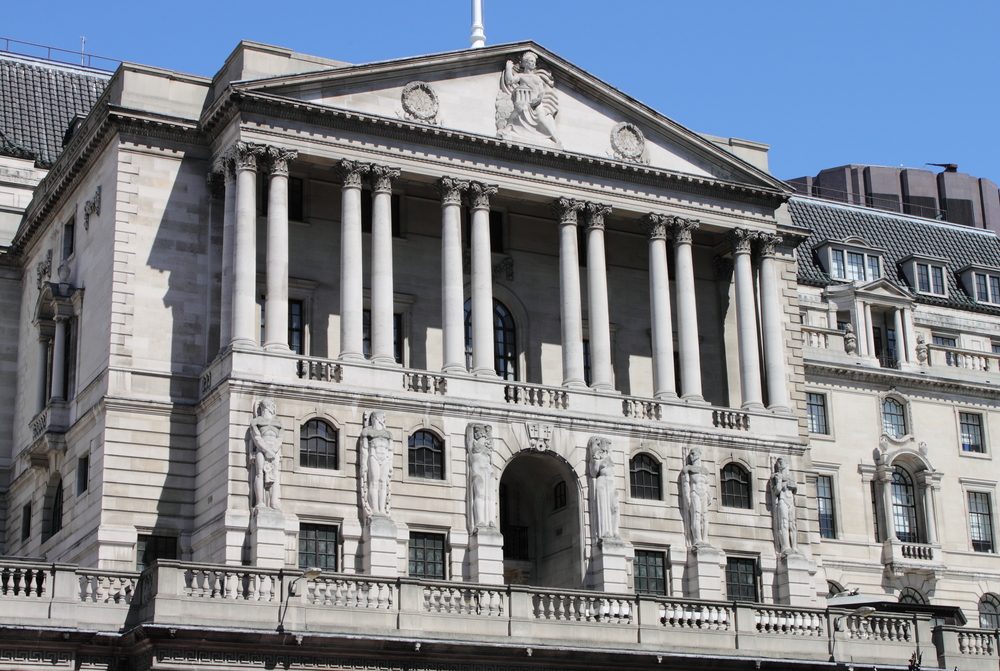News
Base rate held at 0.1% as Bank injects extra £150bn into economy

The Bank of England has maintained the base rate at a historic low 0.1% as it announces a further £150bn of asset purchases to prop up the economy amid a second lockdown.
The Bank’s Monetary Policy Committee (MPC) voted unanimously to keep rates at 0.1% – the lowest in its history.
Members also voted unanimously to increase the target stock of purchased UK government bonds (quantitative easing) by an extra £150bn, on top of the existing £100bn programme.
This takes the total stock of government bond purchases to £875bn.
Minutes from the meeting noted that Covid will weigh on near-term spending to a greater extent than projected in August, leading to a decline in GDP in Q4 2020. GDP will be around 9% lower in Q1 2021 than in Q4 2019.
However, household spending and GDP are expected to pick up in Q1 2021, as lockdown restrictions loosen.
GDP will also be impacted by Brexit on 1 January 2021 though the MPC assumed the UK would move to a free trade agreement with the European Union.
But the MPC judged there is “spare capacity in the economy” as with the unemployment rate rising to 4.5% in the three months to August, “it is likely that labour market slack has increased by more than implied by this measure”.
It stated: “The extended Coronavirus Job Retention Scheme and new Job Support Scheme will mitigate significantly the impact of weaker economic activity on the labour market. The unemployment rate is expected to peak at around 7.75% in Q2 2021. Beyond that point, spare capacity is expected to be eroded as activity picks up, and a small degree of excess demand emerges over the second half of the forecast period.”
Turning to inflation, the MPC noted that while the figure increased to 0.5% in September, it’s well below the 2% target. However, it is expected to remain at, or just above 0.5% during most of the winter. But it will “rise quite sharply” towards the target due to lower energy prices and VAT.
As such, the MPC said inflation is projected to be 2% in two years’ time.
It added: “The outlook for the economy remains unusually uncertain. It depends on the evolution of the pandemic and measures taken to protect public health, as well as the nature of, and transition to, the new trading arrangements between the European Union and the United Kingdom. It also depends on the responses of households, businesses and financial markets to these developments.
“The MPC will continue to monitor the situation closely. If the outlook for inflation weakens, the committee stands ready to take whatever additional action is necessary to achieve its remit. The committee does not intend to tighten monetary policy at least until there is clear evidence that significant progress is being made in eliminating spare capacity and achieving the 2% inflation target sustainably.”
‘Negative interest rates are certainly on the table’
Laith Khalaf, financial analyst, AJ Bell, said the Bank is beginning to “run out of dry powder” as it now holds almost half the gilt market and interest rates are already close to zero.
“That means if the central bank wants to boost the economy further, it may resort to even more extraordinary measures than we have today.
“Negative interest rates are certainly on the table. The Bank is seriously weighing this up and has written to bank chiefs to see if they can handle it. QE could also shift towards different assets, such as more corporate bonds, high yield bonds and even equities, as has happened in Japan,” he said.
Khalaf added: “Much will depend on how the pandemic, social restrictions and the government’s fiscal response proceed from here. For the moment markets are pricing in a 40% chance of an interest rate cut next year, and it’s fair to say that markets have consistently underestimated the capacity for monetary policy to loosen ever since the financial crisis.
“This is all terrible news for cash savers, who have endured more than ten years of ultra-low interest rates. £210 billion now sits in cash accounts that don’t pay any interest, up from £26 billion in 2008. A further £837 billion is held in accounts paying on average 0.13%.
“This money is slowly but surely losing its buying power, even though inflation is currently so low. That won’t be the case for too long, as inflation is expected to move back towards 2% in the first half of next year as lower energy prices fall out of the equation.”